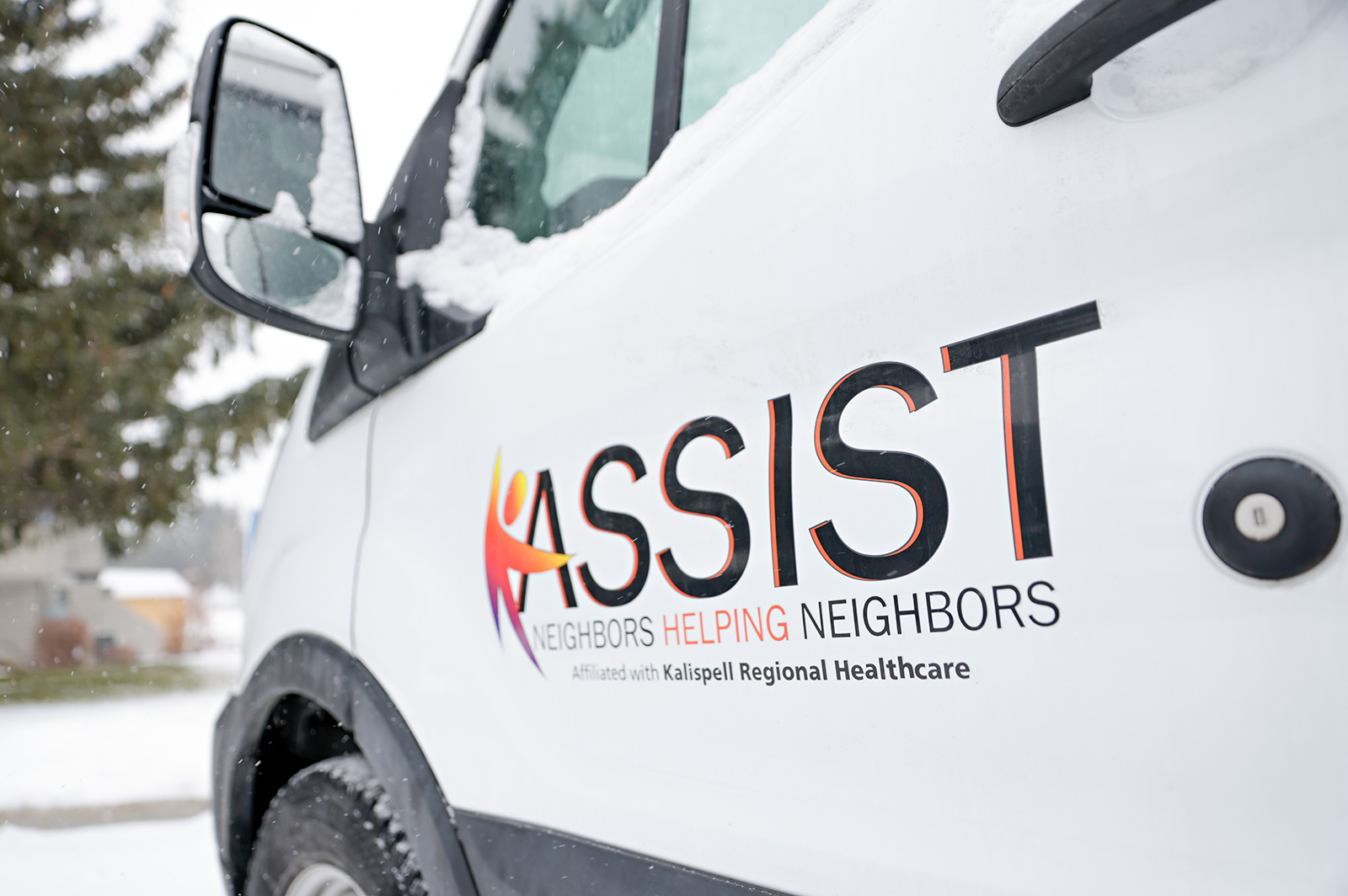Nonprofit Seeks to Connect Vulnerable People with Help
ASSIST Flathead currently has less than half its ideal number of volunteers and gets hundreds of referrals a year
By Mike Kordenbrock
A 77-year-old retired county road department worker, Marcus Keithly said that when he joined up with the nonprofit ASSIST Flathead in 2017 he was looking for something to do with the extra free time he had on his hands.
Volunteering and helping people has a consistent 100-fold return in good feelings, according to Keithly. That’s one truth he has little doubt about from his time volunteering. Another truth?
“There is a lot of suffering going on out there. There’s suffering all over,” he said. “I just wish I could take a politician with me some time to look at some of these things to get a better picture of what’s happening down at this level.”
The level Keithly is referring to is the one at which some people in Flathead County are at their most vulnerable. He’s found himself in a range of situations, from trying to help someone with a traumatic brain injury navigate the unforgiving margins of the valley’s housing market, to talking with a reluctant veteran about signing up for social security disability benefits.
ASSIST volunteers, are what volunteer coordinatorTammy Harmon calls “connectors.” The nonprofit is affiliated with Logan Health. Doctors or case workers refer patients to ASSIST for help with certain non-medical issues that they don’t have the time or ability to resolve.
ASSIST also helps coordinate travel for people who have difficulty transporting themselves to medical appointments. “We have the only van with a bariatric wheelchair lift in the county,” Harmon said. The nonprofit’s paid staff provide upwards of 375 rides a month.
A volunteer with ASSIST’s Neighbors Helping Neighbors program might help someone sign up for SNAP benefits, Medicare or Medicaid, or help them put together the necessary paperwork to get a new social security card. Sometimes they help with taxes or to sign up for already existing programs for things like energy assistance.
The nonprofit hosts training workshops in the spring but hasn’t been able to have one for two years. The plan right now is to host one this spring. People who are interested in learning more about assist can attend the workshops to learn more and see if they’re a good fit, according to Harmon.
An ideal volunteer is “detective minded” but also has good boundaries and is self-motivated, Harmon said.
“When they hear someone talk about problems, they have to be thinking, ‘If this were my mom or my brother, what would I do, who would I call, who would have an answer here.’”
A volunteer might be asked to engage with a new person, called a care receiver, every week and could spend two to four hours a week trying to help them. Sometimes a volunteer’s work with someone ends quickly. In other cases the process takes months.
“The place we may start is applying for a birth certificate, so we can apply for a driver’s license, so we have two forms of ID to get a social security card, so that we can apply for a benefit of some sort,” Harmon said. “It can be quite involved. Getting someone connected isn’t always as easy as ‘Oh, there, I filled out an application.’”
The Neighbors Helping Neighbors program gets around 800 referrals a year, according to Harmon.
The program currently has 10 volunteers but “during ideal times” has 24, Harmon said. Volunteers are oftentimes retirees. They come from a variety of backgrounds and have worked as teachers, insurance agents, financial advisers and accountants.
One volunteer, Sue Riopel, spent her career in the U.S. Army, including working in military intelligence. She spent the last 10 years of her career working for the Pentagon and has been retired for roughly 15 years. She has a business preparing income taxes, and has volunteered with ASSIST for three years. Riopel said that part of her motivation for volunteering comes from her time in the military, which she emphasizes made her a “service member.”
“That’s what we do. We serve,” she said.
Giving back is also something that Riopel feels is part of one’s duties as a person and a citizen. Faith, is also a motive for her.
“I’m a Christian, and that’s what Christians do. That’s what we’re supposed to do: is trust God and do good. That’s why I’m here, to do good any way I can.”
For a while, volunteers had to stop home visits because of the pandemic. Riopel said that her typical office space to meet people for ASSIST is a table at Sykes Diner with her laptop and a cup of coffee. She said she goes in with compassion, and patience, and “as a listener.”
“Sometimes it’s just listening,” she said. “It can be so difficult because they’re already hurting, physically, emotionally, mentally. They’re already hurting and they’re already in a bad position.”
Knowing that someone is struggling and there’s only so much you can do to help can be emotionally difficult in a way that lingers on the mind after the work is done, according to Keithly, the retired road department worker.
“The biggest problem is housing around here, when you have to tell someone, ‘You don’t make enough money to live here,’” Keithly said. “Housing seems to be the biggest thing where you walk away and go ‘I don’t know what they’re going to do.’ It’s just frustrating. So that hurts.”
Still, Keithly said he’s glad he has a chance to try and help, and doesn’t have plans to quit anytime soon.
“I’ll do it ‘till the day I drop, or can’t do it anymore,” he said.